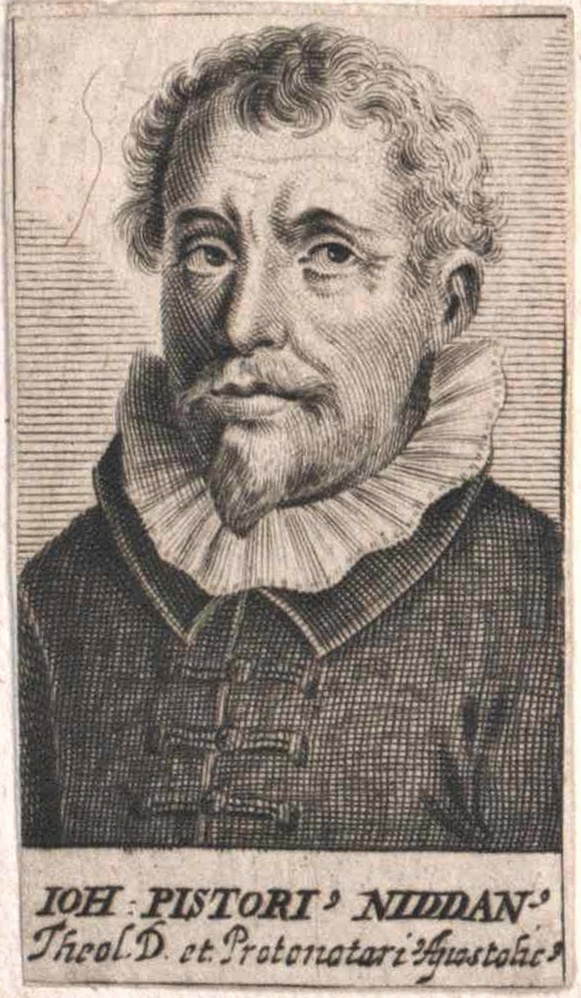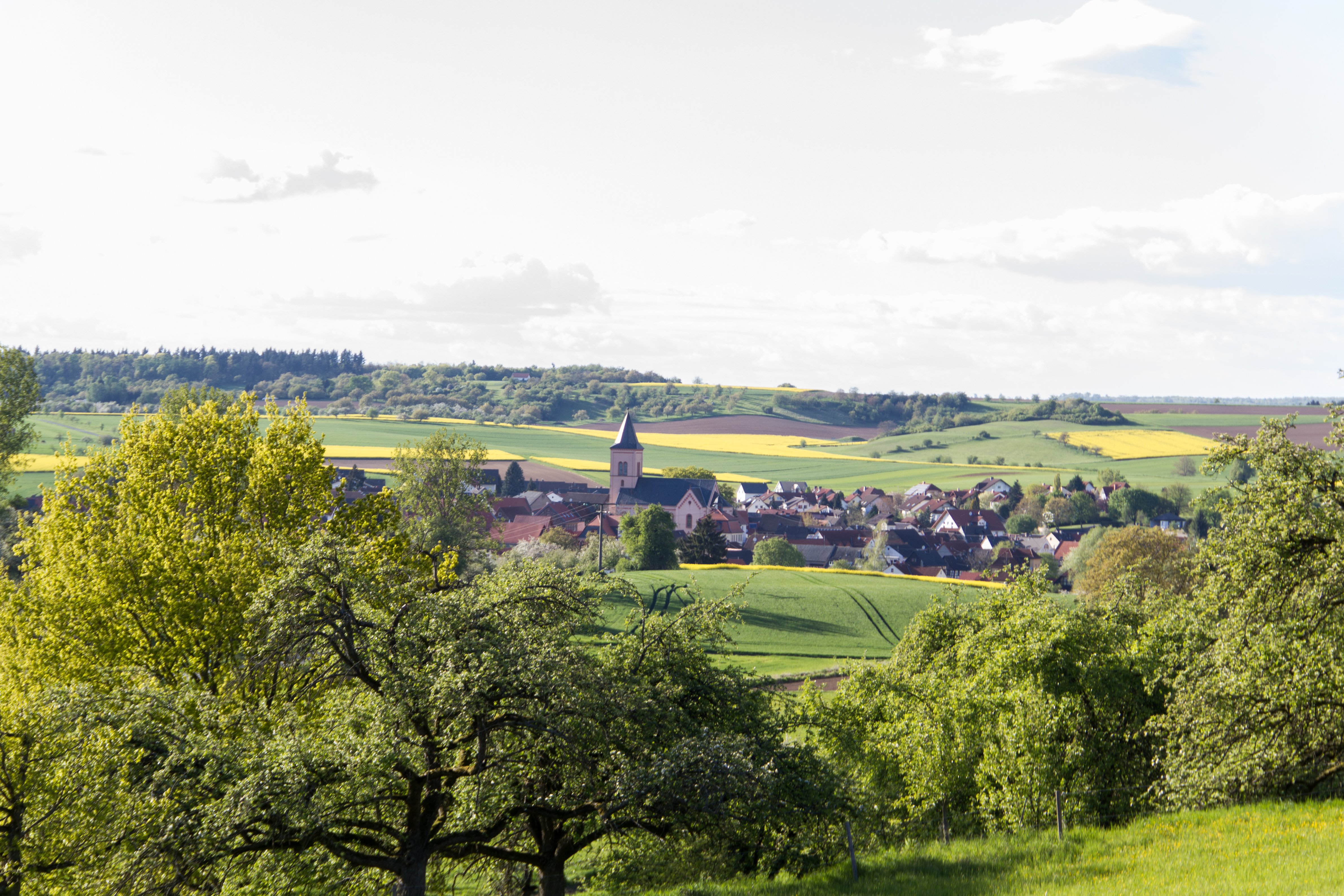|
Nidda, Hesse
Nidda () is a town in the district Wetterau, in Hesse, Germany. It is situated on the Nidda river, approximately northeast of Frankfurt am Main. Division of the town The municipality consists of the districts Unter-Widdersheim, Ober-Widdersheim, Borsdorf, Harb, Bad-Salzhausen, Geiß-Nidda, Ulfa, Stornfels, Eichelsdorf, Ober-Schmitten, Unter-Schmitten, Kohden, Nidda, Michelnau, Fauerbach, Wallernhausen, Schwickartshausen, Unter-Lais and Ober-Lais. History Invited through a manifesto issued by Catherine the Great, several families from this region travelled to Russia in the late 18th century to settle in the Volga Region near Saratov. Family names Appel, Daubert, Pfaffenroth, Weitz and Scheuermann are examples of Volga Germans who helped to establish local villages, including Yagodnaya Polyana. Nidda has a vibrant mix of people from many backgrounds, including Turkish, Russian and Pakistani. The Ahmadiyya Ahmadiyya, officially the Ahmadiyya Muslim Jama'at (AMJ), is ... [...More Info...] [...Related Items...] OR: [Wikipedia] [Google] [Baidu] |
Hessisches Statistisches Landesamt
The statistical offices of the German states (German language, German: ) carry out the task of collecting official statistics in Germany together and in cooperation with the Federal Statistical Office of Germany, Federal Statistical Office. The implementation of statistics according to Article 83 of the Basic Law for the Federal Republic of Germany, constitution is executed at state level. The Bundestag, federal government has, under Article 73 (1) 11. of the constitution, the exclusive legislation for the "statistics for federal purposes." There are 14 statistical offices for the States of Germany, 16 states: See also * Federal Statistical Office of Germany References {{Reflist National statistical services, Germany Lists of organisations based in Germany, Statistical offices Official statistics, Germany ... [...More Info...] [...Related Items...] OR: [Wikipedia] [Google] [Baidu] |
Volga Germans
The Volga Germans (, ; ) are ethnic Germans who settled and historically lived along the Volga River in the region of southeastern European Russia around Saratov and close to Ukraine nearer to the south. Recruited as immigrants to Russia in the 18th century, they were allowed to maintain their German culture, language, traditions and churches (Lutheran, Reformed, Catholics, Moravians and Mennonites). In the 19th and early 20th centuries, many Volga Germans immigrated to the United States, Canada, Brazil, and Argentina. After the October Revolution, the Volga German ASSR was established as an autonomous republic of the Russian SFSR. During World War II, the republic was abolished by the Soviet government and the Volga Germans were forcibly expelled to a number of areas in the hinterlands of the Soviet Union. Following the dissolution of the Soviet Union in 1991, many Volga Germans immigrated to Germany. History Invitation to settle in Russia In 1762, Catherine II, bo ... [...More Info...] [...Related Items...] OR: [Wikipedia] [Google] [Baidu] |
Prince Charles William Of Hesse-Darmstadt
Karl Wilhelm of Hesse-Darmstadt (17 June 1693, Nidda - 17 May 1707, Gießen) was a Prince of Hesse-Darmstadt. Life Charles William was the second son of Ernest Louis, Landgrave of Hesse-Darmstadt (1667–1739) from his marriage to Dorothea Charlotte (1661–1705), daughter of Albert II, Margrave of Brandenburg-Ansbach. When Charles William was four years-old, his father appointed him Colonel of the newly created Hesse-Darmstadt Kreis Regiment. Two years later, the education of Charles William was handed over to Johann Konrad Dippel in Gießen, where the Landgrave's family had fled before the advancing French troops. Karl Wilhelm died at the age of 13, during the War of Spanish Succession The War of the Spanish Succession was a European great power conflict fought between 1701 and 1714. The immediate cause was the death of the childless Charles II of Spain in November 1700, which led to a struggle for control of the Spanish .... His younger brother Prince Francis ... [...More Info...] [...Related Items...] OR: [Wikipedia] [Google] [Baidu] |
Johann Pistorius
Johann Pistorius (14 February 1546 – 19 June 1608), also anglicized as John Pistorius or distinguished as Johann Pistorius the Younger, was a German controversialist and historian. He is sometimes called Niddanus from the name of his birthplace, Nidda in Hesse. Life His father was a well-known Protestant minister, Johann Pistorius the Elder (died 1583 at Nidda). From 1541 he was superintendent or chief minister of Nidda, and took part in several religious disputations between Catholics and Protestants. Pistorius the Younger studied theology, law, and medicine at Marburg and Wittenberg 1559-67. He received the degree of Doctor of Medicine, and in 1575 was appointed court physician to the Margrave Karl II of Baden-Durlach, who frequently sought his advice in political and theological matters. Pistorius turned from Lutheranism to Calvinism; through his influence the Margrave Ernst Friedrich of Baden-Durlach made the same change. As time went on, however, Pistorius became ... [...More Info...] [...Related Items...] OR: [Wikipedia] [Google] [Baidu] |
Johann Pistorius The Elder
Johann Pistorius (January 1504, Nidda, Hesse – 25 January 1583, Nidda) was a German Protestant minister and Protestant reformer. From 1541 he was the Superintendent at the church in Nidda in Hesse. Along with Philipp Melanchthon and Martin Bucer, Pistorius was appointed by Charles V to represent the Protestants at the Diet of Regensburg in 1541. He also participated in the Colloquy of Worms in 1557. Pistorius was the father of Johann Pistorius Johann Pistorius (14 February 1546 – 19 June 1608), also anglicized as John Pistorius or distinguished as Johann Pistorius the Younger, was a German controversialist and historian. He is sometimes called Niddanus from the name of his birth ... (the Younger). 1504 births 1583 deaths People from Nidda German Protestant Reformers German male non-fiction writers {{Germany-reli-bio-stub ... [...More Info...] [...Related Items...] OR: [Wikipedia] [Google] [Baidu] |
Ambrosius Pelargus
Ambrosius Pelargus (c. 1493 – 5 July 1561) was a German Dominican theologian. He was skilled in Latin, Greek, and Hebrew. His polemical efforts were directed principally against the Anabaptists, the Iconoclasts, and those who rejected the Mass. Pelargus was a humanist name, from the Greek ''pelargon'', meaning stork; his real name is given as Storch.Thomas Brian Deutscher, Peter G. Bietenholz, ''Contemporaries of Erasmus'' (2003), p. 63. Life Pelargus was born at Nidda, Hesse. He entered the Dominican order probably at Freiburg, Breisgau. He attended the Diet of Worms (1540) and the Council of Trent in 1546, as theologian and procurator of the Archbishop of Trier. On 10 May 1546, he addressed the assembled priests. When the Council was transferred to Bologna in 1547, Emperor Charles V, incensed against Pelargus because he had favoured the transfer, induced the archbishop to recall him, but the latter chose him again as his theologian in 1561. He died at Trier Tri ... [...More Info...] [...Related Items...] OR: [Wikipedia] [Google] [Baidu] |
Pistorius Johannes1
Pistorius or Pistor (from Latin ''pistor'' meaning miller or baker) are Latinized surnames, corresponding to the Dutch Bakker or the German Becker and German Müller. Notable people with the surname include: Pistorius * Boris Pistorius (born 1960), German politician * Calie Pistorius, Vice-Chancellor and Principal of the University of Pretoria * Caren Pistorius, South African actress * Charlotte Pistorius (1777–1850), German poet * , German artist * Hermann Andreas Pistorius (1730–1798), German Protestant-Lutheran theologian and philosopher * Johannes Pistorius (other), several people * Martin Pistorius, South African web designer and author * Micki Pistorius, South African forensic psychologist and author * Oscar Pistorius (born 1986), South African double-amputee athlete and convicted murderer Pistor * Johann Jakob Pistor, 18th-century German general who served in the Imperial Russian army * Ludger Pistor (born 1959), German actor See also * ''Dem ... [...More Info...] [...Related Items...] OR: [Wikipedia] [Google] [Baidu] |
Ahmadiyya
Ahmadiyya, officially the Ahmadiyya Muslim Jama'at (AMJ), is an Islamic messianic movement originating in British India in the late 19th century. It was founded by Mirza Ghulam Ahmad (1835–1908), who said he had been divinely appointed as both the Promised Mahdi (Guided One) and Messiah expected by Muslims to appear towards the end times and bring about, by peaceful means, the final triumph of Islam; as well as to embody, in this capacity, the expected eschatological figure of other major religious traditions. Adherents of the Ahmadiyya—a term adopted expressly in reference to Muhammad's alternative name '' Ahmad'' — are known as Ahmadi Muslims or simply Ahmadis. Ahmadi thought emphasizes the belief that Islam is the final dispensation for humanity as revealed to Muhammad and the necessity of restoring it to its true intent and pristine form, which had been lost through the centuries. Its adherents consider Ahmad to have appeared as the Mahdi—bearing the qualities ... [...More Info...] [...Related Items...] OR: [Wikipedia] [Google] [Baidu] |
Saratov
Saratov ( , ; , ) is the largest types of inhabited localities in Russia, city and administrative center of Saratov Oblast, Russia, and a major port on the Volga River. Saratov had a population of 901,361, making it the List of cities and towns in Russia by population, 17th-largest city in Russia by population. Saratov is north of Volgograd, south of Samara, and southeast of Moscow. The city stands near the site of Ukek, Uvek, a city of the Golden Horde. Tsar Feodor I of Russia likely developed Saratov as a fortress to secure Russia's southeastern border. Saratov developed as a shipping port along the Volga and was historically important to the Volga Germans, who settled in large numbers in the city before they were expelled before and during World War II. Saratov is home to a number of cultural and educational institutions, including the Saratov Drama Theater, Saratov Conservatory, Radishchev Art Museum, Saratov State Technical University, and Saratov State Univ ... [...More Info...] [...Related Items...] OR: [Wikipedia] [Google] [Baidu] |
Wetteraukreis
The Wetteraukreis is a ''Kreis'' (district) in the middle of Hesse, Germany. Neighbouring districts are Landkreis Gießen, Vogelsbergkreis, Main-Kinzig-Kreis, district-free Stadt Frankfurt, Hochtaunuskreis and Lahn-Dill-Kreis. History The district was created in 1972 when the two districts Friedberg and Büdingen were merged. Geography The district is located between the Taunus mountains and the Vogelsberg volcanic A volcano is commonly defined as a vent or fissure in the crust of a planetary-mass object, such as Earth, that allows hot lava, volcanic ash, and gases to escape from a magma chamber below the surface. On Earth, volcanoes are most often fo ... mountain. The main rivers of the district are the Nidda River and the Wetter River. Coat of arms The imperial eagle in the top of the coat of arms was chosen because the Wetterau was imperial possession in the past. The bars in the bottom derive from the lords of Isenburg-Büdingen, who owned most of the area. T ... [...More Info...] [...Related Items...] OR: [Wikipedia] [Google] [Baidu] |
Volga
The Volga (, ) is the longest river in Europe and the longest endorheic basin river in the world. Situated in Russia, it flows through Central Russia to Southern Russia and into the Caspian Sea. The Volga has a length of , and a catchment area of .«Река Волга» , Russian State Water Registry It is also Europe's largest river in terms of average discharge at delta – between and – and of . It is widely regarded as the national river of |
Russia
Russia, or the Russian Federation, is a country spanning Eastern Europe and North Asia. It is the list of countries and dependencies by area, largest country in the world, and extends across Time in Russia, eleven time zones, sharing Borders of Russia, land borders with fourteen countries. Russia is the List of European countries by population, most populous country in Europe and the List of countries and dependencies by population, ninth-most populous country in the world. It is a Urbanization by sovereign state, highly urbanised country, with sixteen of its urban areas having more than 1 million inhabitants. Moscow, the List of metropolitan areas in Europe, most populous metropolitan area in Europe, is the capital and List of cities and towns in Russia by population, largest city of Russia, while Saint Petersburg is its second-largest city and Society and culture in Saint Petersburg, cultural centre. Human settlement on the territory of modern Russia dates back to the ... [...More Info...] [...Related Items...] OR: [Wikipedia] [Google] [Baidu] |




